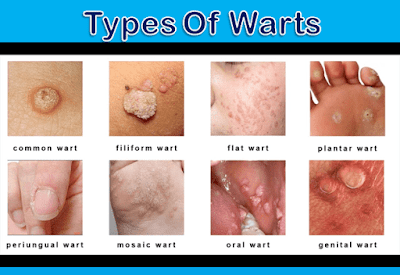CAN'T SLEEP? KKHWC TEACHES YOU HOW TO SLEEP WELL AGAIN
Sleep is a divine gift
conferred by God. As food and water are essential for us, so does the sleep. It
is a blessing to our system with it our body and mind rejuvenates self and
prepare for next day challenges.
Most of us may have
experienced trouble sleeping sometimes due to workload, target presentations, travel,
stress, illness, or other temporary interruptions to our normal routine. However
if sleep dilemma becomes a routine problem and interferes in life, you may be
suffering from a sleep disorder. This may not only impact your physical health,
but also affect emotions, memory problems; even it may cause weight gain in
some cases. Accordingly, it is very evident that lack of proper sleep
inevitably affects us badly.
Do
you…
|
WHAT IS SLEEP DISORDER?
Couldn’t get enough
sleep at night leaves you un-refreshing in the morning and throughout the day
you feel exhausted and energy less. When at night trying to replenish yourself
at bed, you still have trouble sleeping. This vicious cycle never ends leaves
you frustrated, debilitated, less efficient to handle work, study or even distress
your relationship. Quality and quantity sleep is necessary to stay healthy and
to stand every day challenges.
Unhealthy
eating habits, lack of exercise and inactive life play role in your sleep
disorder. Reversible factors which are in control like noises, work
overload or mosquitoes can be held guilty.
There can be various types
of sleep disorder. Insomnia when
patient is unable to sleep due to stress, anxiety, depression, illness or even after
excess intake of tea or coffee. Sleep
apnea is a problem in which your breathing temporarily stops during sleep,
awakens you frequently. It is a serious and potentially life-threatening sleep
disorder, so see a doctor right away. You may have irresistible urge to move
legs at night that prevents you from sleeping. This sleep disorder is Restless legs syndrome (RLS). Or you may
feel excessive, uncontrollable
daytime sleepiness. This is Narcolepsy caused
by dysfunction of the brain system
that controls sleeping and waking. At times, due to respiratory dysfunction
such as upper airway resistance syndrome or snoring can cause Sleep disordered breathing (SDB).
There can be causes
like bedwetting, sleep terror, sleep walking, sleep talking, abnormal and
unnatural movements, behaviors, emotions, perceptions, and dreams that may
affect your sleep.
In short anything
which prevents you from regular and healthy sleep causes sleep disorder.
AM I HAVING ENOUGH SLEEP?
Though approximate hours for which one should
sleep in a day for a healthy state is specified. But this rule is not
applicable to all.
Normally
Observed Sleep Hours/Day
Newborns (0-3 months): 14-17 hours
Infants (4-11 months): 12-15 hours
Toddlers (1-2 years): 11-14 hours
Preschoolers (3-5): 10-13 hours
School age children (6-13): 9-11
hours
Teenagers (14-17): 8-10 hours
Younger adults (18-25): 7-9 hours
Adults (26-64): 7-9 hours
Older adults (65+): 7-8 hours
|
Generally it is
accepted that one should sleep for such a time that after awaking one does feel
rejuvenated instead of lousy.
How
do I know I am having enough sleep? Do you know our biological clock?
We all have an internal biological clock that
regulates our 24-hour sleep-wake cycle, also known as our circadian rhythms. Light is the
primary indication that influences circadian rhythms. At night, when there is
less light, your brain triggers the release of melatonin, a hormone that makes
you sleepy. When the sun comes up in the morning, the brain tells the body that
it’s time to wake up. When
your circadian rhythms are disrupted or thrown off, you may feel tired,
disoriented, and sleepy.
HOW CAN I HELP MYSELF
You can still sleep
better by making healthy changes to your habits and bedtime routine. There are
many things you can do to get a good night’s sleep.
Ø First step, instead of using alarms or
imposed time schedule let our body tell when to sleep and when to awake. Go to
bed every day at a specific time and wake
up when our body find it fit to awake “or”
wake up every day at a specific time and go
to bed when our body demands so.
Ø Second step is to change/modify your environment. This includes changing bed sheet,
bed sofa and pillows, use of mosquito's repellent, earplug, etc.
Ø Make sure your bedroom is quiet, dark, and cool
Ø Avoid
heavy meals
Ø Take a warm bath if possible, read, or listen to soothing music to unwind, and
turn off screens at least one hour before bedtime.
Ø Adopt an active life style. Start morning Walk, jogging, aerobics, yoga.
Keep your body in active.
Ø Drink plenty of fluids, but not
caffeine or alcohol but not late
at night
Ø For depression or anxiety, increase your social activities, meet
friends, keep away from negative people and consult doctor if medicine is
necessary.
Ø If these do not help you or you have some
any physical ailments or mental issues, consult
doctor.
If self-help doesn’t do the trick, schedule an appointment with a doctor. He can identify the underlying causes of your sleeping problem and find ways to improve your sleep and quality of life. Provide your doctor with as much supporting information as possible.
HOW HOMEOPATHY CAN HELP ME!!
By treating your
physical and mental ailments like sleep walking, bed wetting, and
depression etc. homeopathy ensure your restful nights.
(Note: Homeopathy has
very good history of ordering sleep disorders and it does not use sedatives for
it.)
DisclaimerThe information provided in the article purposes only to understand health and treatment conditions in a better way. It should not be taken as the substitute of medical diagnosis. It is requested to not to use the website matter for diagnosing any disease. It is suggested to consult a doctor before taking any of the above mentioned medicines.
Now
you don’t have to live with a sleeping problem.
KK’s Homeopathy & Wellness Center





Comments
Post a Comment